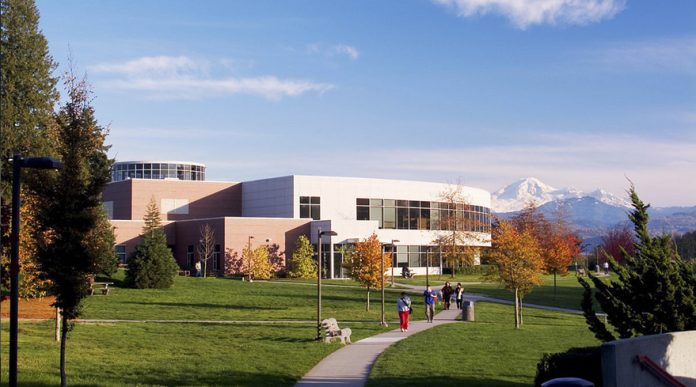In an effort to provide flexibility to students, UFV’s history department is offering its first upper-level online course.
David Milobar, associate professor with the history department and the courses’ instructor, was motivated to move his History 364 course on Indian social history online out of curiosity and convenience.
“I just thought it would be interesting to try,” Milobar said. “There are certain groups that are particularly attracted to online courses, people who, as one student described it to me, have a life, who maybe are working.”
Like other online courses Milobar has taught, History 364 will have an audio lecture component, images, and even virtual tours.
“For my English history classes, they go to see exhibits that are in the British Library or the British Museum that are available online, so that’ll be incorporated as part of the course,” Milobar said. “In my opinion the key is simplicity. If it becomes complicated for students to find articles and things like that, they get discouraged and they drop the course very quickly.”
Chris Leach, head of the history department, noted that along with offering flexibility to students, online courses also attract students that aren’t even in the country.
“One of the things that we’re noting is that we’re actually tapping into international students through the online environment,” Leach said.
Milobar experienced this while teaching India 264 in the fall semester, where he had students taking the course from India and New Zealand.
“It has to be designed in such a way that they can access material and conduct the assignments without ever having to set foot on UFV campus,” he explained. “Things have to be designed so that there’s the possibility that they can do a stripped-down version because in some parts of the world they don’t have great internet connections and if you’re dependant on lots of bandwidth, they wouldn’t be able to access it.”
Aside from the ability to student nearly everywhere, offering courses online also caters to students with varied learning styles.
“For some people, because the lectures are available in audio format that they can listen to and replay, if they’re intimidated about their language comprehension it provides them an opportunity to listen and replay,” Milobar said. “There are some people that don’t feel comfortable in an environment with a number of students, they just prefer to work on their own.”
However, online courses come with their own set of disadvantages as well, and Milobar explained that teaching in an online setting can become difficult without the element of in-person interaction.
“If students come to me and have a question, if I look at them I can tell if they’re not getting it or understanding what I’m saying,” he said. “Online, the nature of that type of communication can be kind of more difficult to get the nuances of human interaction. If I look out on a class while lecturing and they’re all asleep, I know it’s a pretty boring lecture … You don’t get that with an online environment.”
Online courses also require a level of self-discipline and independence that Leach noted can be a challenge for students as well, especially with the online discussions that are a required part of the courses.
“History is a course, a debate if you will, where you read historians’ works and we’re constantly talking about how to interpret the past. I think in order to do that … you have to communicate your ideas,” he said. “Many students aren’t used to doing that in class, but I think it’s even harder if you have to do that with self-motivation. To contribute to discussion is harder I think in an online environment.”
Despite these challenges, the convenience of online courses is still a growing attraction that has resulted in an increase of offerings not only in the history department but within the rest of UFV as well. Peter Geller, UFV’s vice-provost and associate vice-president academic noted that the amount of online courses offered each semester is rising.
“I know that our numbers over time have been increasing,” he said. “We have more and more offerings.”
Along with courses that are strictly online, the institution is also increasing the amount of courses that combine online with classroom learning.
“I think something we really have been encouraging is sort of the hybrid approach,” Geller said. “There’s elements that take place in the online environment and others that are face to face, so you can combine them.”
History is one of the departments at UFV that already offers hybrid courses, including one where students complete the course mostly online but meet for four full-day sessions throughout the term as well.
The department is currently developing its next upper-level online course, this time on historical autobiography, a subject that has only been taught as an independent study. Leach noted that there are also plans to offer more online courses, as well as hybrid courses, in the future.
“We’re realizing that those options are what students are looking for,” he said. “That said, our plan is still that the live classroom experience is the most commonly offered type of course. We’ve done student surveys and by far the vast majority of students still prefer the live course, but offering flexibility and options is the priority of the department as well.”
“The in-class experience is the most important one to us and we can all agree as instructors, and students seem to agree, that that’s really their favourite format. But there’s a significant minority that like the online flexibility so we want to cater to that as well.”


